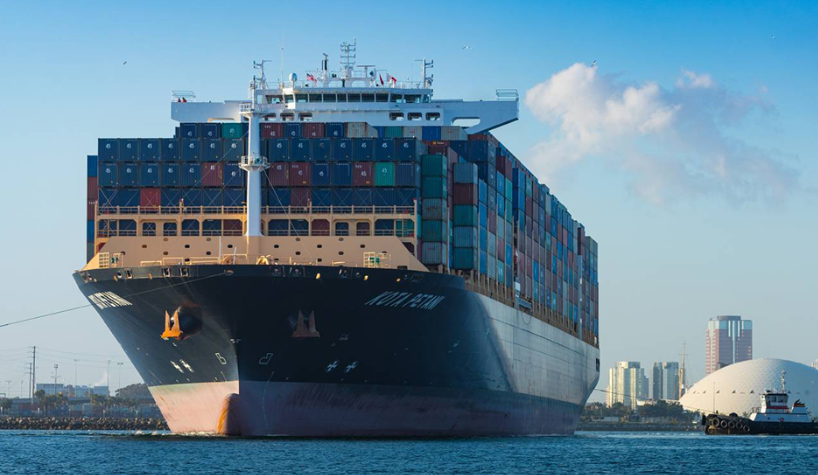Government/Policy

January 13, 2024
Leibowitz: Rising military activity in the Red Sea threatens international trade
Written by Lewis Leibowitz
After three months of provocations, the US and Britain retaliated against Houthi rebels in Yemen, bombing several sites in North Yemen that assisted in Houthi attacks on international shipping in the Gulf of Aden and the Red Sea.
The Houthi rebels are widely seen as Iranian proxies, launching attacks to provoke the West into attacking Yemen, leading to more attacks on shipping. The Houthis (who are called “rebels” but who actually control most of the northern part of the country) claim they are acting in solidarity with Hamas against Israeli “occupation.”
Who is right and who is wrong is a muddle. In my view, the most serious problem here is the impact on international trade by a group of “rebels” in one of the poorest countries in the Middle East.
There’s a geographical problem here. Yemen happens to sit on the eastern side of the Bab-el-Mandeb (rough English translation: Gate of Tears), the strait separating the Arabian Peninsula from the African country of Djibouti (formerly French Somaliland). At its narrowest, the strait is 14 miles across. Through this narrow gateway about 15% of global trade passes (more than 20% of container shipping). Until 1869, the strait was not a major international trade waterway. In that year, the Suez Canal opened, a maritime interstate highway that bypassed the continent of Africa in trade between Europe and Asia.
The Bab-el-Mandeb is one of the key international trade bottlenecks in the entire world, thanks to the Suez Canal. Other bottlenecks include Bosporus-Dardanelles (Turkey), the Strait of Hormuz (Iran/United Arab Emirates), the Strait of Malacca (Malaysia/Indonesia), and (another man-made bottleneck) the Panama Canal. Trade flows are a vital part of global life. Countries that control these bottlenecks have the power to disrupt trade, affecting the lives of billions of people.
Freedom of navigation is hardly a 21st-century invention. In US history, wars (declared and undeclared) were fought to keep sea lanes open. Such dustups as the undeclared naval war with France (1798-1800), the war against the Barbary pirates (1804-05), and the War of 1812 all stemmed largely from seizure of US vessels engaged in trade. Most significantly, the US entered World War I because of the German policy of “unrestricted submarine warfare” against neutral shipping. In his speech asking Congress for a declaration of war, President Woodrow Wilson declared that freedom of the seas was “more precious than peace.”
The US has formed a like-minded coalition of about 20 countries to take collective action against the Houthis. The attacks from the Houthis began last November and increased markedly after Jan. 1. The US, Australia, Bahrain, Belgium, Canada, Denmark, Germany, Italy, Japan, the Netherlands, New Zealand, and the United Kingdom warned the Houthis repeatedly against further attacks threatening shipping in the area. The Houthis were defiant, claiming they were supporting Hamas by attacking ships that were headed for “occupied Palestine.”
Britain and the US participated in the retaliatory action last week, which continues. South Korea joined in a further warning against continued attacks by the Houthis after the retaliation.
A resolution is not in sight. Indeed, it seems inevitable that combat action will continue to escalate at least until the Houthis run out of missiles and drones. And that will not happen until the Iranians are willing to cut off the supply of weapons to their clients in Yemen. The Iranians show no signs of that. No one wants the war to escalate to the extent required to convince Iran to stop sending missiles and drones to Yemen.
A New York Times article recently quoted experts who said that the US-led retaliation was not likely to discourage the Houthis from continuing their attacks. Indeed, after the first US-led attacks last Thursday, tens of thousands of Yemenis took to the streets, condemning the attacks as “aggression” (a peculiar choice of words, although there are many instances of that peculiarity in the news lately).
If the goal is securing freedom of navigation, rational choices are limited. The response must exact a price from the Houthis for defying international law, but not so much as to widen the war to include Iran (and possibly others). However, doing nothing in response will encourage others in charge of the navigation bottlenecks to be bolder in their actions. I expect that more attacks are coming, but will stop short of involving Iran directly, unless Iran wants to get in.
Increasingly fundamental issues are at stake (the existence of Israel, the freedom of navigation, collective security against aggression) in 2024. As a student of history, I am reminded of the outbreak of World War I in 1914. The assassination of the heir to the throne of Austria-Hungary (Archduke Franz Ferdinand) ignited a world war of immense destruction. This happened because the leading powers of the day could not manage the crisis and failed to anticipate the tragic consequences of that failure.
The US declaration of war in 1917 was largely triggered by concerns about freedom of navigation. That principle is at least as important now as it was back then. The world must find a way to keep the sea lanes open, hopefully with a minimum of bloodshed. The effects of closing off commerce, if the world allows it, would be catastrophic. But so would be the effects of an escalating regional war.
Editor’s note: This is an opinion column. The views in this article are those of an experienced trade attorney on issues of relevance to the current steel market. They do not necessarily reflect those of SMU. We welcome you to share your thoughts as well at info@steelmarketupdate.com.







